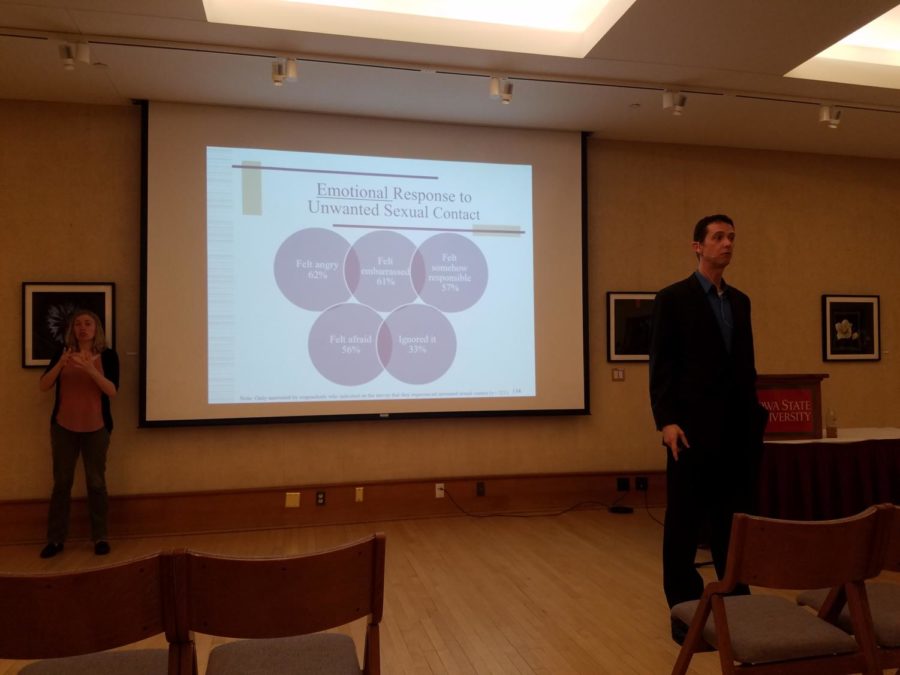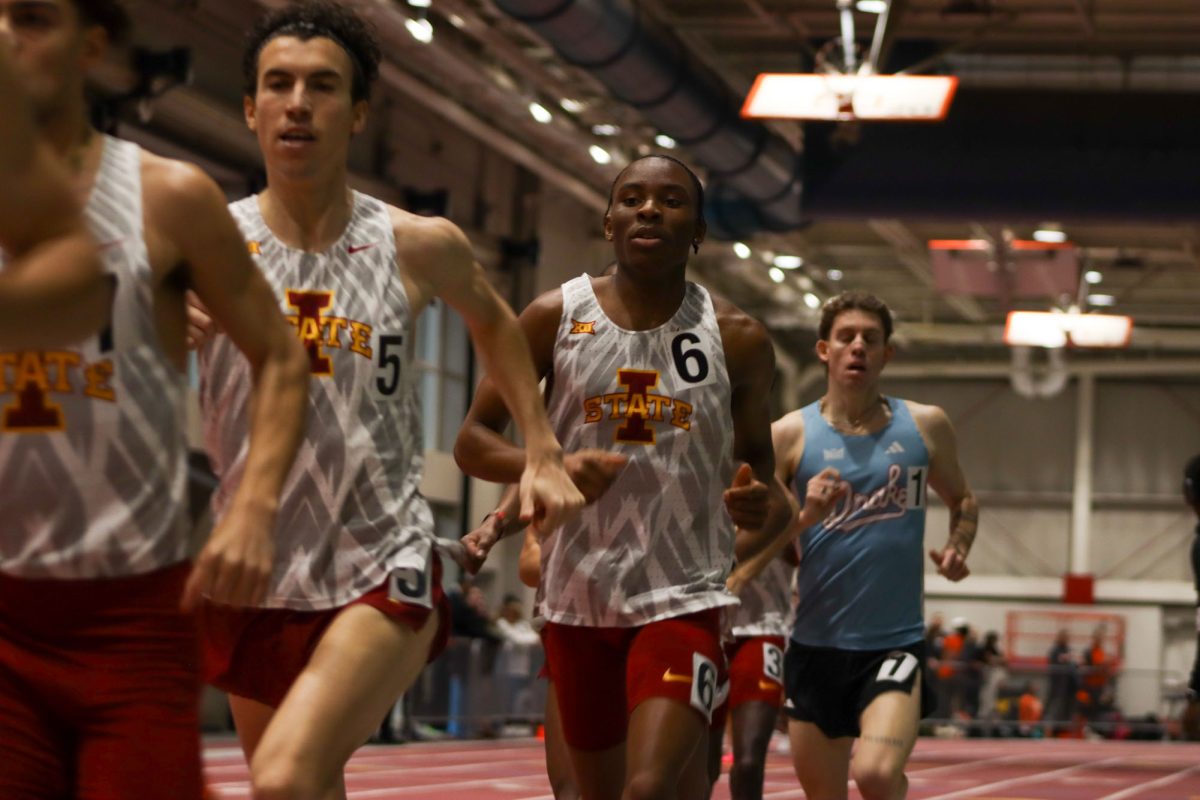- App Content
- App Content / News
- News
- News / Politics And Administration
- News / Politics And Administration / Campus
By the numbers: breakdown of the Campus Climate survey
Dan Merson, pictured right, goes over the summary of the statistics gathered in the fall of 2017 Campus Climate survey.
May 13, 2018
The full results of the fall 2017 campus climate survey, conducted by Rankin and Associates Consulting, were released earlier last week.
Iowa State community members completed 7,326 surveys for an overall response rate of 17 percent. While this is not a high enough percentage to make generalization, conductors of the survey are still confident in the validity of their results.
Here is the breakdown of the numbers.
Harassment
Nineteen percent or 1,375 respondents indicated they had personally experienced harassment defined as exclusionary, intimidating, offensive and/or hostile conduct that had interfered with their ability to work, learn or live at Iowa State University within the past year.
Of those respondents, 32 percent, or 424 respondents, had experienced five or more instances.
Thirty percent said it was due to their gender or gender identity, 21 percent or 283 respondents said it was based on their ethnicity and 20 percent, 274 respondents, said it was based on their position or status.
Twenty-nine percent, or 2,107 survey respondents, observed conduct directed toward a person or group of people on campus they believe was harassment.
Unwanted Sexual Encounters
Eleven percent or 770 survey respondents indicated on the survey they had experienced unwanted sexual contact/conduct.
One percent, 80 respondents, experienced relationship violence; 2 percent, 157 respondents, experienced stalking; 8 percent, 554 respondents, experienced unwanted sexual interaction (e.g., catcalling, repeated sexual advances, sexual harassment) and 3 percent, 221 respondents, experienced unwanted sexual contact (e.g. fondling, rape, sexual assault, penetration without consent) while a member of the Iowa State community.
Of those who had experienced unwanted sexual contact, 90 percent, 193 respondents, did not report the incidents.
The main reasons respondents gave for not reporting unwanted sexual contact were “fear of consequences,” “blamed themselves,” saying it was “no big deal” and they “expected no response.”
One respondent said, “I internalized victim blaming thinking that people would not believe me because the person who assaulted me was an athlete.”
Barriers for Marginalized Students
With regard to campus facilities, 28 percent, or 44 transgender/genderqueer/non-binary respondents experienced barriers in restrooms and 22 percent, approximately 35 respondents, experienced barriers in campus housing and signage within the past year.
With regard to campus facilities, 15 percent, or 124 respondents with disabilities experienced barriers in classrooms/labs, 14 percent, 115 respondents, in classroom buildings and 11 percent, 89 respondents, related to parking within the past year.
Staff Perceptions of Campus Climate
Twenty-one percent, or 689 employee respondents, indicated they had observed hiring practices at Iowa State University they perceived to be unjust.
Of those employee respondents who indicated they had observed discriminatory hiring at Iowa State University, 28 percent, 195 respondents, noted it was based on nepotism/cronyism, 25 percent, 172 respondents, on gender/gender identity and 21 percent or 145 respondents perceived unjust hiring practices based on ethnicity.
Twenty-seven percent or 198 of faculty respondents “strongly agreed” or “agreed” students prejudged their abilities based on their perception of their identity/background. Women perceived this at a higher rate, 28 percent, than men, 15 percent. Non-U.S. citizen respondents perceived this at a higher rate, 11 percent, than their citizen counterparts, 4 percent.
Thirty-three percent or 2,376 respondents had seriously considered leaving Iowa State University. With regard to employee position status, 54 percent, or 411 faculty respondents, and 50 percent, or 908 staff respondents, had seriously considered leaving Iowa State University in the past year.
Student Perceptions of Campus Climate
Seventy-five percent or 3,543 student respondents felt valued by Iowa State faculty; 74 percent or 3,495 felt valued by Iowa State staff; and 53 percent or 2,487 respondents felt valued by Iowa State senior administrators.
Significantly lower percentages of undergraduate student respondents, women respondents, transspectrum respondents, multiracial respondents, student respondents with disabilities, first-generation respondents, no religious/spiritual affiliation respondents and off-campus housing respondents noted feeling valued compared with their colleagues.
Thirty-three percent, or 2,376 respondents, had seriously considered leaving Iowa State University. With regard to student status, 22 percent, or 872 undergraduate student respondents, and 23 percent, or 185 of graduate/veterinary medicine student respondents, had seriously considered leaving Iowa State University.







